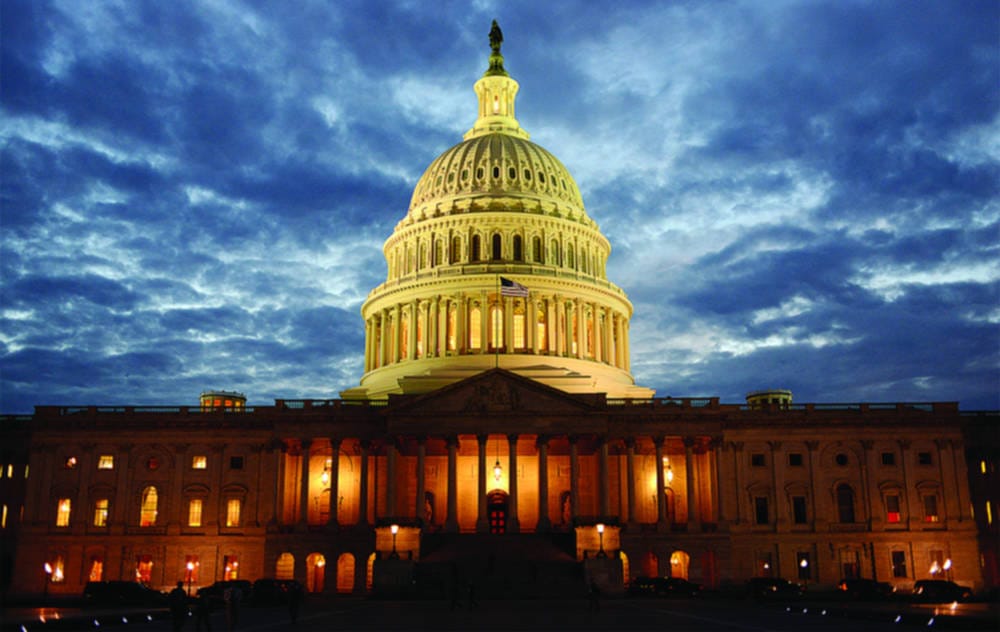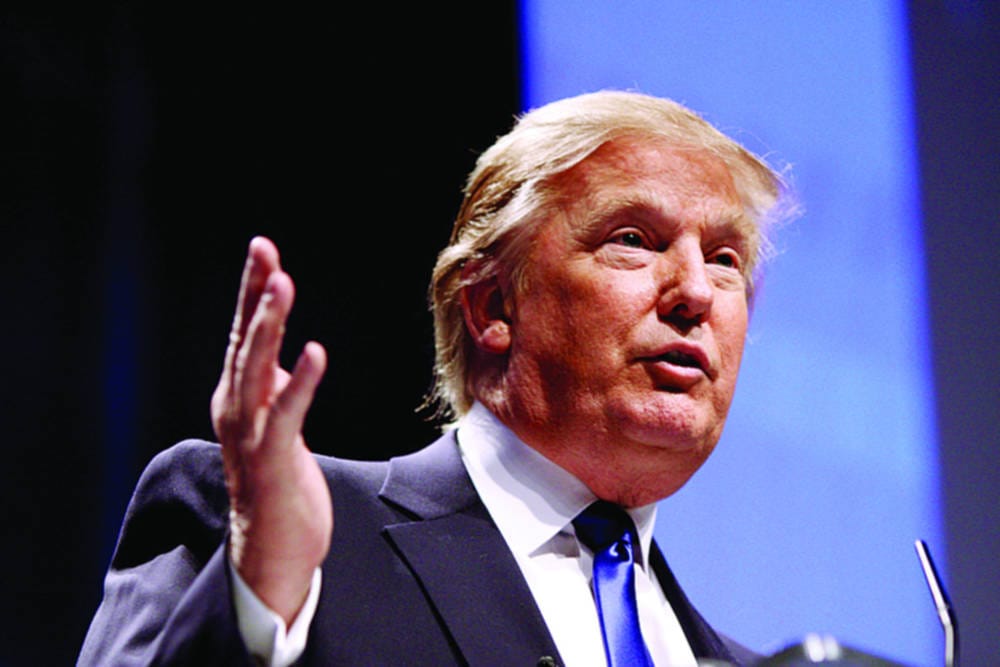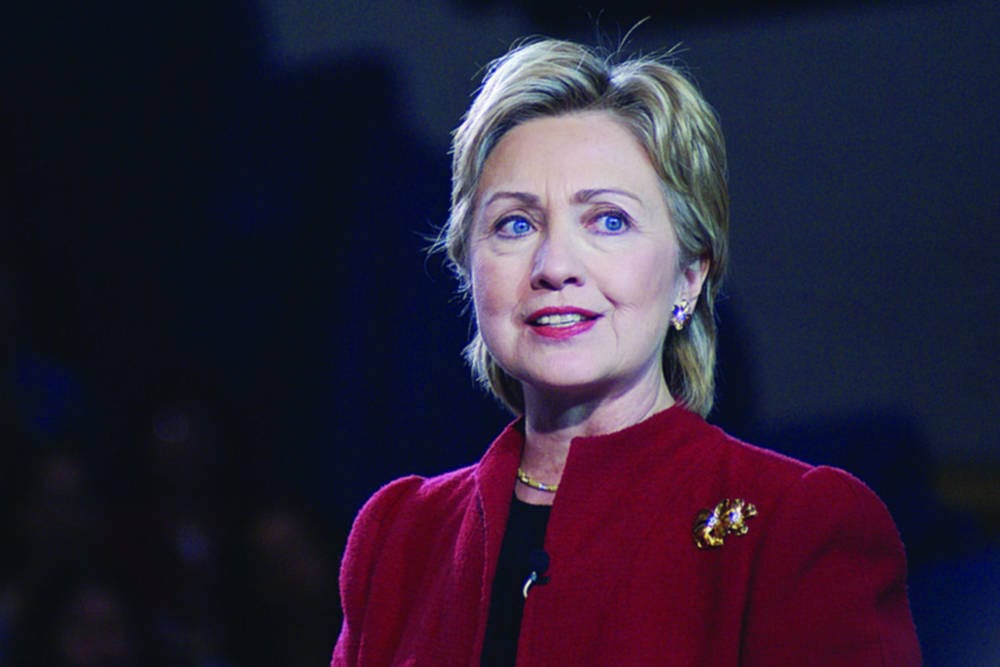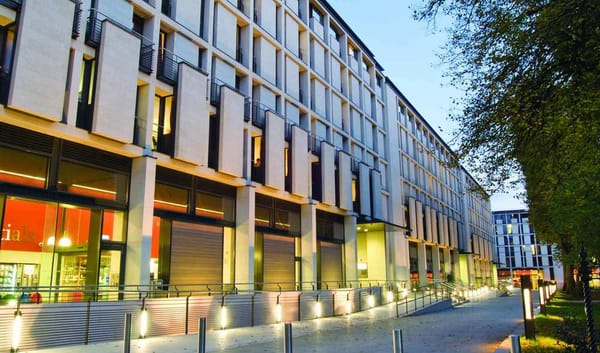An idiot’s guide to the US Election
Not to say you’re an idiot, but at least one of the candidates is

Remember 2012? The London Olympics, (almost) the end of the world and the last US presidential election? Well fast forward four years and we’ve had another set of Olympics, another election cycle is coming to a climax and, if you believe everything people are saying on Twitter, the world is coming to its end if either of the frontrunning candidates wins the race to the White House.
But what does it all mean I hear you ask, who’s running, what are they running for, and how on earth have we got to this point? Shhhh it’s going to be all right. Matt’s here.
How did we get here?
The United States has quite a complex system of selection rounds to get down to its final candidates for each party. A system which involves ‘primaries’ and ‘caucuses’ which can be either open or closed. These spawn delegates (which are assigned via various forms of witchcraft), some ‘superdelegates’ are thrown into the mix, and then at each party’s convention their presidential candidate is chosen.
Realistically only the Democrat and Republican nominees have any chance of winning and the rest may not even get a single electoral college vote (more on this later). Some weird complications and quirks of the rules could gift the outsiders the presidency but take it as the next president will almost definitely be either Donald Trump or Hillary Clinton. (A more in depth look at the selection system can be found in felix 1624.)
The candidates
Donald Trump
The man needs almost no introduction and has been at the forefront of the news over the past few months, at times even superseding the fallout of Brexit. The businessman, former Apprentice host, and hair spray enthusiast has pitched himself as an outsider, someone to challenge the current way of doing politics. This is factually true as Trump has never held elected office, been a federal government official or held a high ranking military post (all other presidents have).
It’s been a campaign that even Malcolm Tucker would find hard to spin (Nigel Farage did give it a shot though)

Delving deeper into Trump we see some more worrying statements on women, Mexicans and Muslims (and these are just the headlining ones). From a blanket ban on Muslims entering the US to ‘help’ combat terrorism, to bragging about sexual assault in the infamous ‘pussy grabbing’ audio from 2005, it’s been a campaign that even Malcolm Tucker would find hard to spin (Nigel Farage did give it a shot though). But he still, even as these deplorable character traits have come to light, is polling at around 45% of the popular vote. But why? Because in some cases voters are willing to overlook these things.
For the sects of the American population that feel disenfranchised with current politics and for whom the current government is nowhere near helping them, Trump is seen in some respects as a chance-at-turning-this-around move. People are witnessing banks and corporations prospering far more than themselves and want to change the shift of power back to the citizens. Any precedent for this happening? cough Brexit cough.
Trump is also the Republican nomination and huge swathes of the US are very conservative and socially right wing. Looking over his personal views people do agree with some of his stances. Or do they? Well that depends which interview and statement you believe of his. He’s been pro and anti gun legislation, pro and anti abortion and has been very economical with the truth regarding his business dealings. He even claimed, in a hard hitting 1990 interview with Playboy, that if he were to run, it would most likely be on a Democratic platform. Has Trump changed his mind over the years, is he a secret centrist politician, or is he simply just pandering to whoever is listening to him? The only way we’ll likely find out either way, is if he gets into office, so in the words of Trump/Dale Winton, “Bring on the wall!” Hillary Clinton
At a glance, Clinton seems a pretty good candidate. She has experience in politics, as First Lady with her husband Bill in the 1990’s, later as a New York senator, and then as Secretary of State under Obama. She has also been heavily involved in The Clinton Foundation, a charitable organisation funding projects worldwide on a whole host of issues. Sounds wonderful, right? Well kinda. There’s more to some of these points than meets the eye. Clinton as Secretary of State was ‘responsible’ for the Benghazi incident (in which four Americans were killed in a US diplomatic outpost in Libya, including the ambassador) and this has been set upon by critics who sense a cover-up/scandal (not implausible).
Like with most 70-year-olds, emails aren’t Hillary’s strong point. In essence, emails shouldn’t have been on certain servers and then emails were deleted when they shouldn’t have been. An FBI investigation was launched, no sanctions were brought against her, but it’s an ongoing saga. If it escalates while she’s in office it could potentially lead to impeachment. Trump could also have the same happen should he be found guilty of fraud regarding Trump University (really) in a trial that starts later this year.

Her relationship with Wall Street has come under fire too. After giving a set of speeches to Goldman Sachs as part of her foundation’s work, how disconnected from them she really is remains to be seen. Clinton’s stance on Syria and no fly zones could (key word being could) send the US into a conflict with Russian forces in tandem with Syria and would involve large scale military deployments. War with Russia isn’t ideal (duh) but like Trump, she’s been known to flip flop over the years and whether this policy would stand, only time will tell. Gary Johnson
As the Libertarian Party candidate, Johnson’s policies are largely that government should take as little interest in the lives of its subjects as possible. Johnson seems to be taking the same approach with current events, showcased by his “what is Aleppo?” comment in an interview about the conflict in Syria. This isn’t the first time he’s been perplexed in an interview mind you, he’s been oblivious as to what the Trans Pacific Partnership entailed, struggled to name a foreign leader, and been generally sketchy on knowing details on complex issues. Johnson is very heavily pro legalisation of marijuana (all drugs actually) and has forced himself to quit smoking pot during his campaign. (How reassuring that this is, him on peak form.) He’s the perennial third party candidate/protest vote and will likely garner a single digit chunk of the vote but no electoral college votes. Jill Stein
Stein, an ex-Physician, has grand plans to eradicate student debt, ensure that the US runs on clean and green energy by 2030 (no nuclear allowed), and take action on climate change. Essentially she’s the antithesis of Johnson on most issues, campaigning on a ticket that includes a $15 minimum wage (that’s about £20 an hour for all of you keeping track at home), demilitarised borders in order to not deter immigration, and an increase in gun-control measures. Similarity comes in the form of being a long shot for the big job, Stein is polling even lower than Johnson and is not even on the ballot paper in some states. Evan McMullin
McMullin has slipped under the radar, even to most Americans, but this isn’t a worry for him. His main appeal lies solely in his home state of Utah where the typically Republican state isn’t best pleased with Trump. Instead they see McMullin’s politics and his Mormon faith as a better alternative than either of the main two candidates. Because McMullin is not affiliated with any specific political party, should he win he would become the first non-partisan candidate since George Washington in 1792 to win a state. How exciting.
Overall, not the greatest bunch of candidates the US has ever had.
The actual race
The United States employs a weird system in which a candidate needs to win a majority of the 538 votes up for grabs in the ‘electoral college’. States get electoral college votes based on how many senators and districts they have, with each district having a representative who sits in the aptly named House of Representatives. Each of the 50 states has two Senators and then a varying number of the overall 435 districts (anywhere from 1 to 53). The number of districts a state has is determined by its population and the average district holds 710,000 eligible voters.
Because these lines are only redrawn every ten years and the number of people of voting age (18+) changes over this period, all votes aren’t created equal. This becomes even more so when you chuck in the rounding of votes (as each state must have a whole number of representatives and hence votes) and the two bonus, Senator, votes that every state gets.
But wait, 435 + (2 x 50) = 535 electoral college votes, not 538. In addition there’s Washington DC which does not actually lie in a state but instead is it’s own district, the District of Columbia (not to be confused the University of Columbia or indeed the country of Colombia). This district gets 3 votes, taking the total to 538.
Each state then goes to the polls on the first Tuesday in November (postponed a week if it’s November 1st like this year) and the winner of each state wins all the electoral college votes for that state. As with everything in the US election there’s always exceptions, this time it’s Maine and Nebraska. These award their two senate votes to the overall winner in the state and then the winner of each district gets that district’s vote. What the whole system also means is that a candidate could win the most number of actual votes in the US and still lose the majority of electoral college votes and hence the overall race. This happened famously in 2000 (after a recount in Florida meant less than 600 votes decided the president) as well as in 1876 and 1888.
Handy if you’re a convict, Richard Nixon or a turkey
With the winner takes all system, the most populous states of (California, Texas etc) are heavily targeted in the race and the smaller states are often forgotten about. Swing states, in which the race is tight, are prioritised too as capturing voters here is far more important than losing by a bit less in the states you’re almost guaranteed to lose.
Long story short, barring any massive surge from third parties, it’ll become a two horse race to win 270 electoral college votes and sweep the presidency. In the unlikely (but ever increasing) chance that they tie, then the House of Representatives will choose the next US president out of the top 3 candidates with electoral college votes (this is a third party’s only chance of being president). Currently the Republicans hold the House but all those seats are up for grabs on the same day and may swing back to the Democrats.
But what does it matter?
he way the US government is set up, it’s designed to be slow and inefficient. The House of Representatives and the Senate (collectively known as Congress) each have to pass any motions the president tries to enact and if they’re controlled by the opposition party then compromises have to be made at the very least. The president does have a lot of sway as a person though and above all has a presidential veto on any motion that passes Congress (mostly).
The president is also the Commander in Chief of the military and has the power over them to do with as he sees fit (mostly). The most important thing for us non-Americans is the diplomatic power the President has, the power to negotiate Executive Agreements (kind of like treaties), and other foreign policy stuff. Presidential pardons are also a pretty powerful thing the President can use, handy if you’re a convict, Richard Nixon or a turkey.
In theory the President’s power is limited by the constitution and so a Trump/Clinton presidency wouldn’t give them free reign entirely. However, the constitution is vague and a President with a lack of respect for established conventions cough Trump cough could take the limits of the constitutional rules for the president to their very edge.
Tuesday’s timetable
Polling officially starts in some places at midnight in their state’s time zone (4am Tuesday GMT) and within a few minutes the results of Dixville Notch, New Hampshire will be released due to their electorate being around 20. Around six hours later (10am GMT) the rest of the country’s polling stations will begin to open over six time zones and will start closing anywhere from 7pm to 8pm local time (11pm to 4am GMT) and then after that states are called pretty rapidly. Usually by around 5am the result should be known but any legal challenges in the event of a close race could drag on for a while. The 2000 election wasn’t called for 36 days for instance.
So grab a boatload of caffeine, stock up on supersized snacks, and watch as the world holds its breath.









